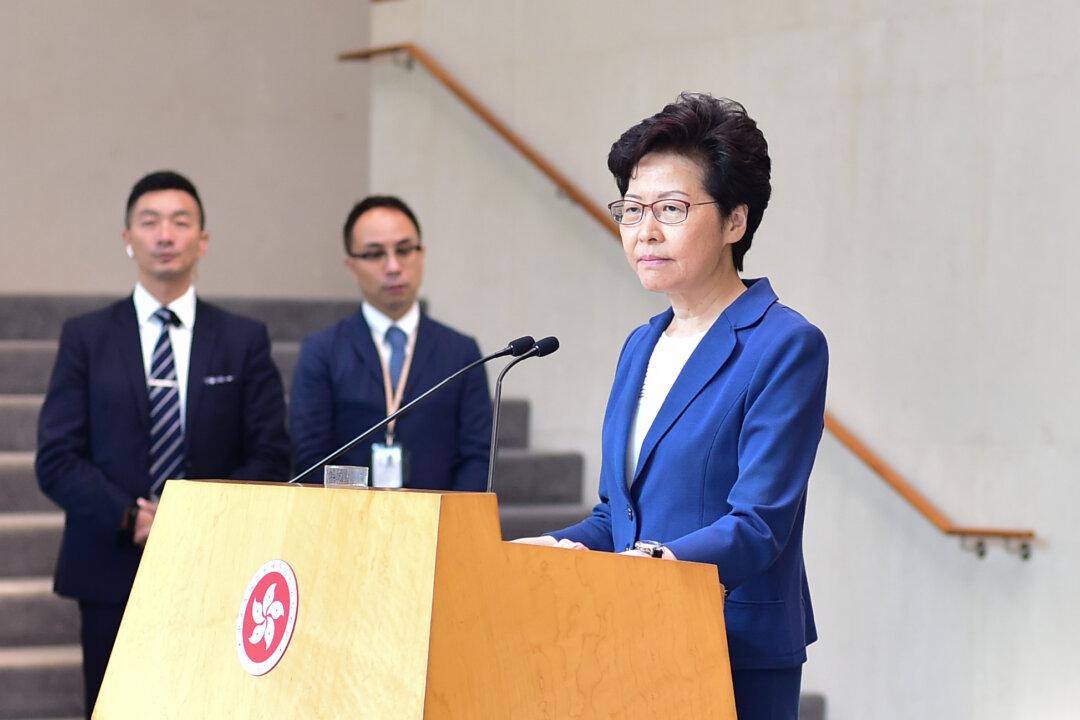Hong Kong leader Carrie Lam said it was too early to say if the ban on facial masks has been effective, in a press conference on Oct. 8, as protests in the embattled city show no signs of slowing down.
“It is too early to say that the anti-mask is not effective,” Lam said, before adding, “It would take time for it to be effectively implemented.”





